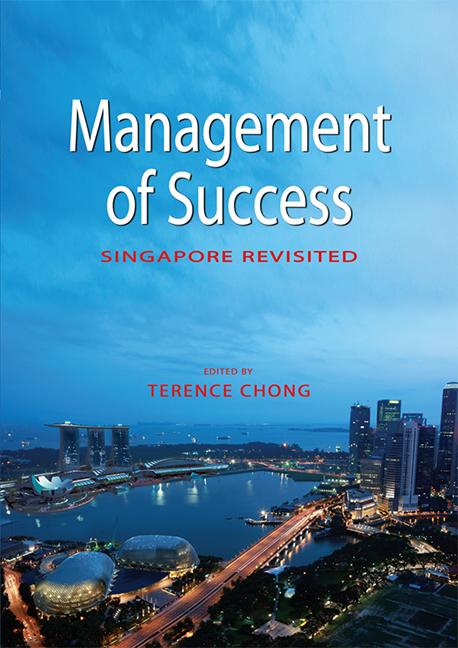Book contents
- Frontmatter
- Contents
- List of Tables and Figures
- Foreword
- Message
- Quote
- Preface
- The Contributors
- 1 Introduction: The Role of Success in Singapore's National Identity
- SECTION 1 SINGAPORE IN THE BIGGER PICTURE
- SECTION 2 LEADERSHIP, POLICY AND POLITICS
- SECTION 3 THE RESTRUCTURING OF THE ECONOMY
- SECTION 4 THE TRANSFORMATION OF SOCIETY
- SECTION 5 THE LAW
- 19 The Penal Code Amendments of 2007: Lessons in Love
- 20 “More Matter, with Less Art”: Human Rights and Human Development in Singapore
- SECTION 6 MODIFICATION OF THE ENVIRONMENT
- SECTION 7 COMMUNITY AND NATIONAL SECURITY
- SECTION 8 LIFE IN SINGAPORE
- Index
20 - “More Matter, with Less Art”: Human Rights and Human Development in Singapore
from SECTION 5 - THE LAW
Published online by Cambridge University Press: 21 October 2015
- Frontmatter
- Contents
- List of Tables and Figures
- Foreword
- Message
- Quote
- Preface
- The Contributors
- 1 Introduction: The Role of Success in Singapore's National Identity
- SECTION 1 SINGAPORE IN THE BIGGER PICTURE
- SECTION 2 LEADERSHIP, POLICY AND POLITICS
- SECTION 3 THE RESTRUCTURING OF THE ECONOMY
- SECTION 4 THE TRANSFORMATION OF SOCIETY
- SECTION 5 THE LAW
- 19 The Penal Code Amendments of 2007: Lessons in Love
- 20 “More Matter, with Less Art”: Human Rights and Human Development in Singapore
- SECTION 6 MODIFICATION OF THE ENVIRONMENT
- SECTION 7 COMMUNITY AND NATIONAL SECURITY
- SECTION 8 LIFE IN SINGAPORE
- Index
Summary
STATE IDEOLOGY AND SHIFTS TOWARDS HUMAN RIGHTS POLICY
Asian countries such as Singapore have viewed human rights with a strong degree of suspicion for various reasons. While not denying the concept of universal human rights as individual or group entitlements asserted against state and society, what remains disputed is the identification of those rights falling within a recognized core, the interpretation of their content and scope against competing interests, and the acceptable modes of implementation or enforcement.
Aside from how an empowering, rights-based discourse could impact on the domestic politics of control, human rights criticism from international actors are considered a form of neo-colonial imperialism, dismissive of diverse histories and cultural practices. As human rights ideology is intensely ethical and highly politicized, states resent being hectored by other imperfect actors.
Singapore is a leading proponent of “Asian values” whereby cultural particularities and the contingencies of economic development are invoked to qualify the universality of human rights. While recognizing that “No country has rejected the Universal Declaration of Human Rights (UDHR)”, then Foreign Minister Wong Kan Seng stated at the 1993 Vienna World Conference on Human Rights that an overemphasis on individual rights at the expense of community interests in the “early phase of a country's development” would “retard progress”. Human rights are but one method of securing the open-ended goal of human dignity, and welfare, to which economic growth was a prerequisite, as “poverty makes a mockery of all civil liberties”, and “order and stability are essential for development”. Thus, to serve social order, civil-political rights were curtailed through strict controls on the press, free speech, and associational rights, as were socio-economic rights in relation to leashing the strength of trade unions.
Singapore's success in attaining First World standards of living and human development in areas of housing, education, clean environment, recreational amenities, and so on has informed the government's attitude towards human rights as a facet of human welfare. The government is impatient towards abstract moralizing, preferring to focus on “matter” or substantive results, rather than “art” or empty, if zealous, rhetoric. A pragmatic, “clinical” approach towards human rights within an “imperfect world” of self-interested states is advocated. The government justified itself to Singaporeans, not foreign critics, “by the more rigorous test of practical success”.
- Type
- Chapter
- Information
- Management of SuccessSingapore Revisited, pp. 355 - 384Publisher: ISEAS–Yusof Ishak InstitutePrint publication year: 2010

